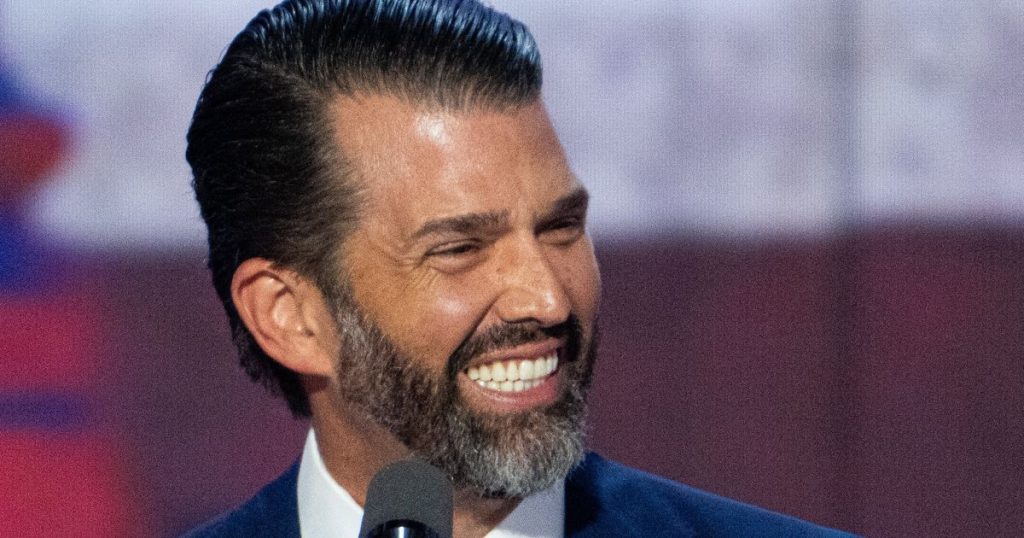Donald Trump Jr. found himself in an awkward moment in the spin room after a debate between Republican vice presidential candidate JD Vance and Democratic counterpart Tim Walz. Trump Jr. criticized the media for creating a political climate that led to two assassination attempts on his father, former President Donald Trump. CNN’s Kaitlan Collins pushed back, reminding Trump Jr. that Vance had once compared his father to Hitler, questioning if he was “America’s Hitler.” This led to a tense exchange between Collins and Trump Jr., with Trump Jr. insisting that the media’s portrayal of his father contributed to the threats against him.
JD Vance, a former vocal critic of Donald Trump, had once referred to him as “America’s Hitler” in a private chat on Facebook in 2016. Vance had also called Trump an “idiot” and a “total fraud,” and identified himself as a “Never Trump guy.” In a 2016 interview with NPR, Vance expressed his belief that Trump was leading the white working class to a dark place. However, Vance has since recanted his previous statements about Trump and attributed them to believing dishonest media narratives about Trump’s record.
During the debate, Vance acknowledged his past criticisms of Trump and admitted that he was wrong about the former president. Vance also shifted blame to the media for influencing his views on Trump, stating that he had bought into false narratives about Trump’s record. This represents a notable change in Vance’s perspective on Trump, as he previously held strong negative views about the former president but has since come to reassess his opinions.
The exchange in the spin room highlighted the complexities of political discourse and how individuals’ opinions can evolve over time. Vance’s shift from a vocal critic of Trump to acknowledging that he was wrong about him showcases the fluidity of political beliefs and the impact of media narratives on shaping perceptions. Trump Jr.’s defense of his father against comparisons to Hitler reflects the ongoing tensions and polarizing rhetoric in American politics, where personal attacks and inflammatory language are not uncommon.
The incident between Trump Jr. and Collins underscores the contentious nature of political debates and the role of the media in shaping public opinion. Both sides presented their perspectives on the influence of media narratives on political discourse, with Trump Jr. blaming the media for creating a negative climate around his father and Collins providing a fact-check on Vance’s past comments about Trump. This interaction sheds light on the complexities of political communication and the challenges of navigating a media landscape that can be both influential and divisive.
Overall, the spin room incident involving Trump Jr., Collins, and Vance highlighted the dynamics of political debates and the changing nature of political alliances and perspectives. Vance’s evolution from a vocal Trump critic to a more nuanced view of the former president demonstrates the complexities of political affiliation and the impact of media narratives on shaping public opinion. The exchange also underscored the role of the media in shaping political discourse and the challenges of navigating a contentious political climate where personal attacks and divisive rhetoric are often prevalent.












